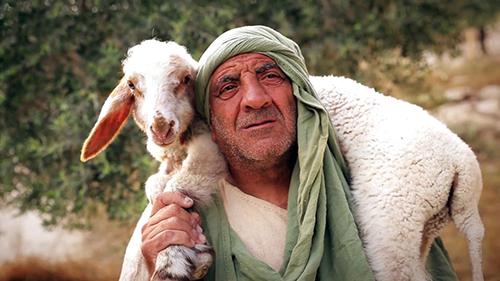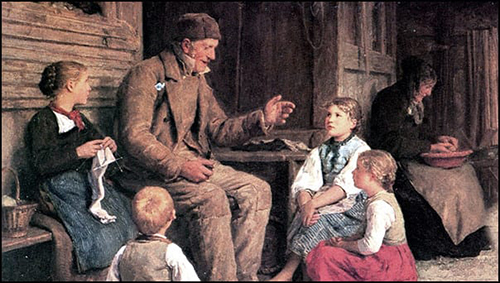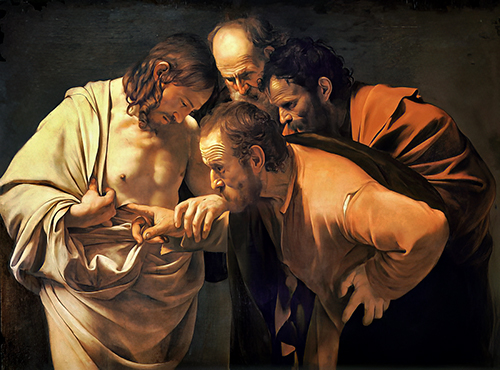
I am a great gatherer of stories that might provide a ‘stepping off point’ for my and others’ reflections. I recall studying in the US and attending a Sunday Mass in the Diocese of Trenton, NJ. The Gospel of the day was the Gospel we proclaim today about the Good Shepherd. (Jn. 10: 27 -30). It is, somewhat surprisingly, no more than four verses long; however, further proof that the best things come in small packages! The homilist began with these words:
“There was a practice among shepherds in Israel that existed at the time of Jesus and is still in use in parts today that needs to be understood to appreciate what Jesus says about God as the Good Shepherd. Sometimes very early on in the life of a lamb, if a shepherd senses that this particular lamb will be a congenital stray and forever be drifting away from the herd, he deliberately breaks its leg so that he has to carry the lamb until its leg is healed. By then, the lamb becomes so attached to the shepherd that it never strays again!”
Through quite an extensive search, I have found no evidence that the practice ever existed, and for me, it sounds rather barbaric.
However, it has provided me with some worthwhile reflection. I am of the period when “you put on your Sunday best” to attend Church on a Sunday (and, of course Holy Days of Obligation). The ‘dressing up’ I consider an important symbol – a symbol of bringing your ‘good self’, your ‘washed and polished self’, a self that would ‘prove acceptable’ into the presence of your God
When I read and reflect on the Gospel stories, I notice it is the broken people who come to Jesus, (deaf, dumb, blind, lame, issue of blood, demon possessed, and many more). They arrive ‘in their brokenness’ and leave healed, some even leave their sleeping mat where it lies.!
Maybe there is a deliberately “broken bit” in me that actually is my conduit into my relationship with Jesus.
Through my silly theology have desperately tried to hide away this “broken bit” to present an acceptable and pleasing face to Jesus.
The question may well be: will I let Jesus carry me, with my broken pieces, until I am healed?
Today is the World Day of Prayer for Vocations.
Let us not reduce this day of prayer to a day of prayer for a select few discerning a call to the religious life, or to ordained ministry. Let us be broad and expansive in our prayer.
Let us pray for a listening ear and a generous heart for women and men throughout our world, attentive to the vocational call of the Good Shepherd – a call to the single life, to life lived in the commitment of married love, to a life lived through the vocation of religious life, to a life lived through the vocation of ministerial priesthood.
Let each of us hear again the foundational call of Christian women and men through the Baptismal grace which names us as daughters and sons of God.



